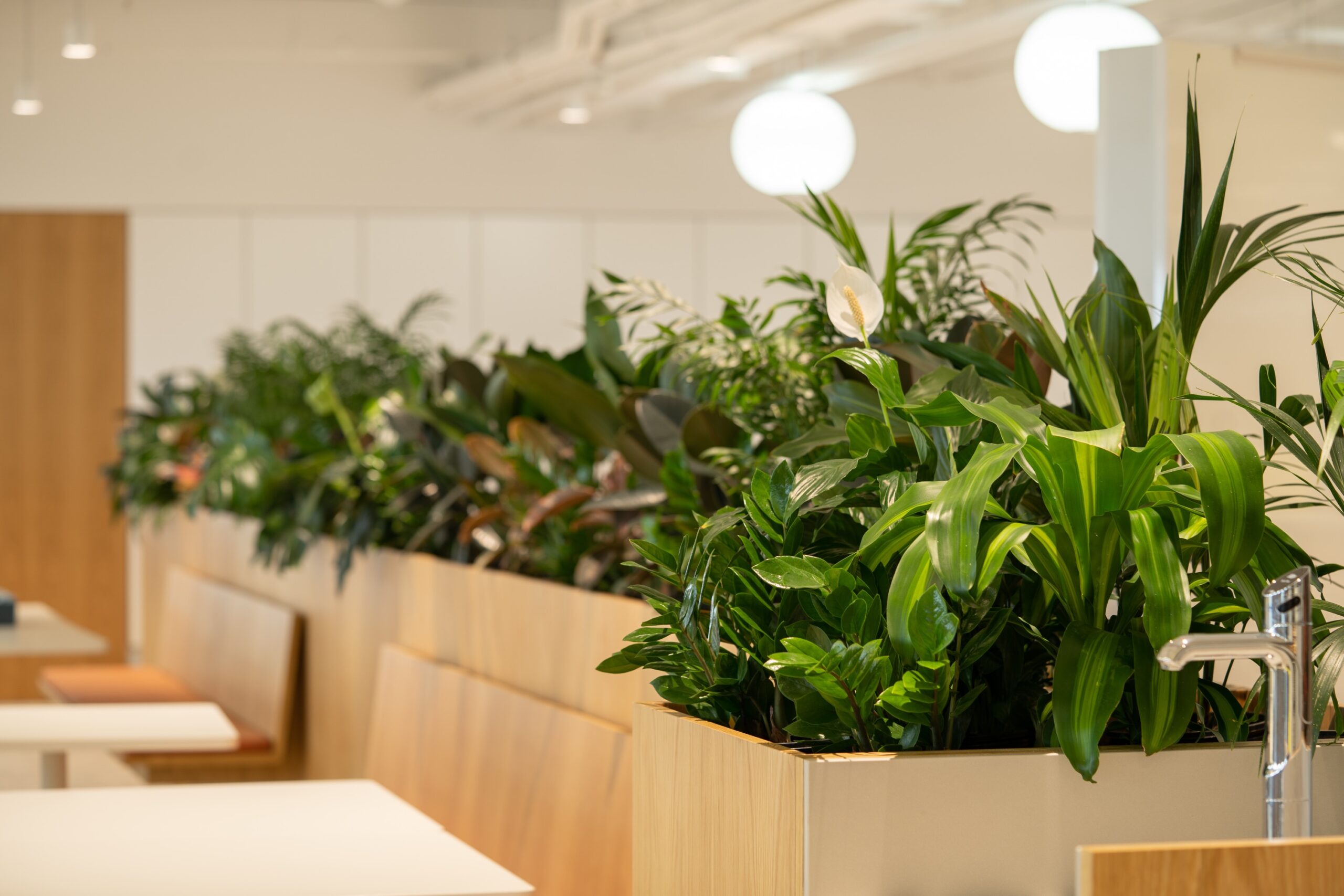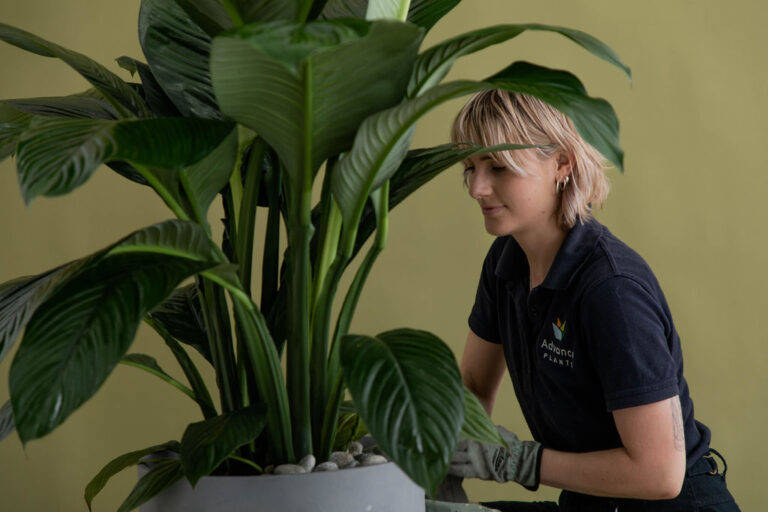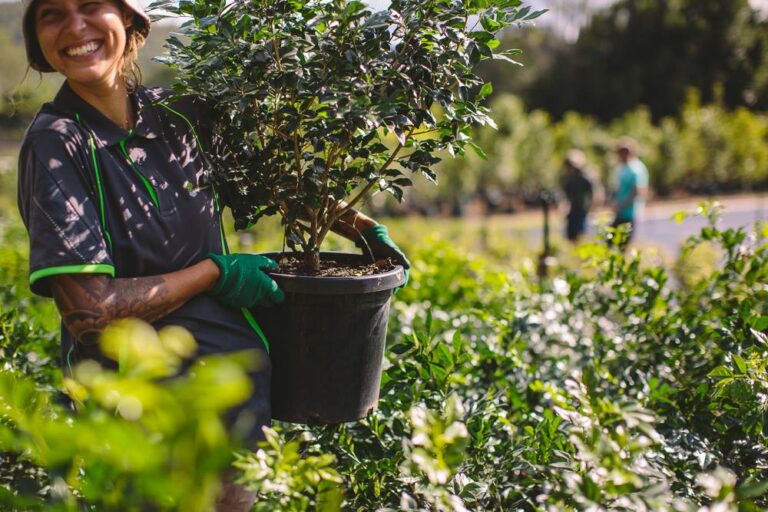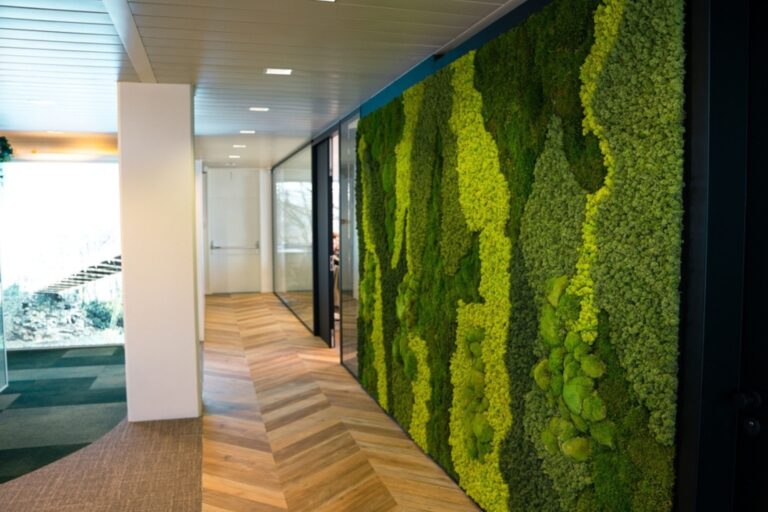Research shows that exposure to natural light and access to office windows can have various positive effects on the well-being and productivity of office staff. Benefits include improved sleep-wake cycles, an 84% reduction in headaches from reduced eye strain, increased alertness (46 minutes more sleep per night), and enhanced mental health outcomes (Hedge, 2017).
However, new research by University of Technology Sydney’s Associate Professor Dr. Fraser Torpy reveals that indoor plants, improving air quality, have a greater impact on workers than office windows.
Dr Torpy’s research delves into the intricate relationship between humans and nature. In particular, the bioremediation of air pollution through plants. His studies have found that indoor plants act as natural air purifiers, removing pollutants and toxins from the air, creating a healthier indoor environment. Cleaner air is not only good for respiratory health but also contributes to increased focus and productivity.
Additionally, Torpy’s research indicates that the visual appeal of indoor plants has a positive impact on mental well-being. Greenery’s soothing aesthetics link to reduced stress levels and improved mood. Our connection to nature extends beyond aesthetics; it deeply ingrains in our psychological well-being.
Beyond the window
While a scenic window view might provide a temporary escape, wider studies unanimously confirm that having indoor plants have a more significant positive impact. One study, published in the Journal of Environmental Psychology, found that individuals who worked in offices with plants reported higher levels of concentration and satisfaction compared to those with a window view.
The research highlights the idea that the positive effects of nature are not solely dependent on the view but rather on the proximity and interaction with greenery. Plants, with their ability to filter the air and create a visually pleasing environment, provide a constant source of well-being that extends beyond a momentary glance out of a window.
Stress reduction and cognitive benefits
Another study published by the Natural Library of Medicine supports the notion that interacting with indoor plants can lead to significant stress reduction. Plants in indoor spaces lower cortisol levels, the stress hormone, creating a more relaxed and calming atmosphere.
Furthermore, plants offer cognitive benefits beyond stress reduction. Research published in the Journal of Experimental Psychology suggests that the simple act of having plants in an office setting can enhance memory retention and overall cognitive function. The study found that individuals working in environments with plants demonstrated a 15 per cent higher level of productivity compared to those in environments devoid of greenery.
In summary, the debate between the benefits of windows and indoor plants in the workplace has evolved. While windows offer natural light and scenic views linked to improved well-being, Dr Fraser Torpy emphasises the remarkable bioremediation of indoor air pollution through plants.
Although, of course, why not both?

Office plant hire
Looking for long term office plant hire in Brisbane or a little further away in South East Queensland? Rent indoor plant and pot combinations from just $50 a week (including plant maintenance and free replacements) or find them at your local nursery.



